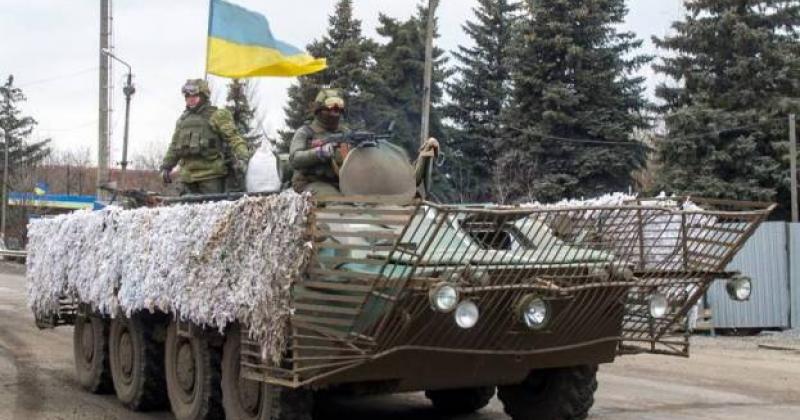Fr. Lombardi has issued a statement clarifying the Pope’s actual words at the General Audience, in light of certain “interpretations”. Ahead of the Consistory, the C9 is holding “hearings” on the Pontifical Council of Culture and the reform of the Vatican media.
In his appeals for peace in Ukraine, Pope Francis “has always wished to address all the interested parties,” the director of the Vatican news room, Fr. Federico Lombardi said in a statement after “differing interpretations” were voiced in relation to the partiality of Pope Francis’ words. Fr. Lombardi issued his statement during a briefing on the progress of the C9’s meetings, which started yesterday and will conclude tomorrow (the C9 being the Council of nine cardinals advising the Pope on the reform of the Roman Curia).
“The Holy See is following attentively the situations of crisis in various parts of the world, including the eastern regions of Ukraine. In the presence of an escalation of the conflict that has claimed many innocent victims, the Holy Father Francis has renewed his appeal for peace on several occasions,” the Vatican spokesman said. “By these interventions, while inviting the faithful to pray for those who have been killed and injured as a result of the hostilities, the Pope also underlined the urgency of resuming negotiations as the only possible way out of the logic of mounting accusations and reactions. Faced with differing interpretations of the Pope’s words, especially those of Wednesday 4 February, I consider it useful to specify that he has always wished to address all the interested parties, trusting in the sincere efforts of each one to implement agreements reached by common consent and invoking the principle of international law, to which the Holy See has referred several times since the beginning of the crisis. As St. John Paul II often repeated, humanity must find the courage to substitute the right to force with the power of law.
“The Holy Father joyfully awaits the 'Ad limina' visit of the Ukrainian Episcopate, scheduled for the days 16-21 February. This will constitute a further occasion to meet those brother Bishops, to be directly informed on the situation of that dear country, to console the Church and those who suffer and to evaluate together paths for reconciliation and peace.” The Episcopal delegation will be composed of both Greek Catholic and Latin Rite bishops as well as the Ruthenian bishop.
Answering journalists’ questions, Fr. Lombardi stressed that the Pope’s words were seen by some as not sufficiently clear. To those who pointed out that the Patriarchate of Moscow and All Russias welcomed Francis’ message with satisfaction, Fr. Lombardi simply underlined that it is clearly “others” who may have felt as though they had “not received enough support” from the Pope. Continuing to answer journalists’ questions, Fr. Lombardi confirmed that we can “naturally” expect the Ukraine issue to be addressed in his scheduled audience with the German Chancellor Angela Merkel – a key figure in the mediation process for the prevention of war in Ukraine – on 21 February.
“When the Pope meets influential political figures it is normal for current issues of greatest concern to be discussed. I therefore think it would be natural for this to be one of the issues covered during their conversation or as a background to the meeting.” At the same time, the Pope does not normally go into any detail about possible political solutions which is not part of his role, so we should not expect the Pope to give any specific suggestions for solutions during the meeting. Aspects of a political nature are usually dealt with (by the visiting head of State or of government leader, Ed.) during the meeting with the Cardinal Secretary of State but even then, we cannot expect the Pope or the Holy See to offer any specific solutions.” In general terms, the Vatican favours attempts at international mediation on Ukraine: The Holy See is always in favour of seeking negotiated solutions,” Lombardi said. “When attempts are underway, the Holy See encourages these as much as possible, not as a political power but as a moral and religious authority that calls on everyone to do their utmost to defend the fundamental values of peace and respect for life.
All Fr. Lombardi had to say regarding the C9 meetings, is that yesterday morning was spent working on the presentation that will be given to cardinals from all across the world who will be meeting on Thursday and Friday ahead of Saturday’s Consistory to be informed on Curia reform. The presentation, Lombardi said, will be delivered “by the secretary of the Council of Cardinals, Mgr. Semeraro, accompanied by the coordinator, Cardinal Maradiaga.” It will follow along the lines of the presentation already delivered to the heads of dicasteries and will include their suggestions. Yesterday afternoon, the C9 attended a “hearing” with Cardinal Gianfranco Ravasi on the issue of the Pontifical Council for Culture which he heads “and the proposals regarding the functions and place this dicastery should have” in the future of the Roman Curia.
Finally, this morning, a second “hearing” was held with Mgr. Paul Tighe, Secretary of the Pontifical Council for Social Communications, for the presentation of the Vatican media commission’s interim report” (Tighe is the commission’s secretary). In both the meeting on the Pontifical Council for Culture and the one regarding Vatican media “Work is still in progress and no conclusions have yet been reached”, Fr. Lombardi informed.
